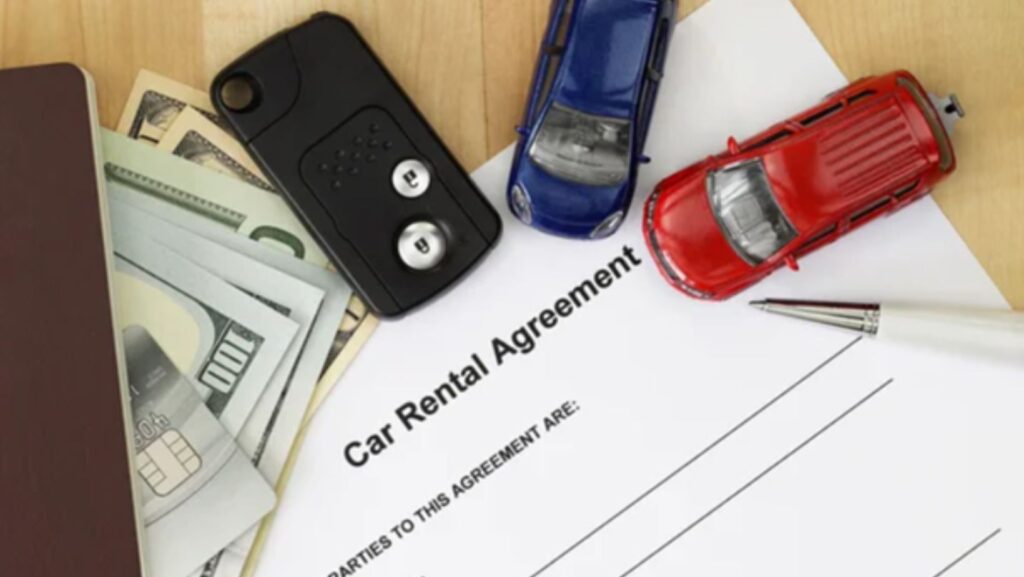
It`s smooth to get stuck in the exhilaration of making plans for a street journey through Turkey. You browse the automobile options, pick your pickup location, and book something that suits your journey style. It all seems straightforward — until you’re handed the rental contract.
Suddenly, what felt like a routine task turned into a page (or several) of fine print in another language, filled with unfamiliar policies, optional charges, and clauses that could impact your entire trip. This is where a lot of travelers lose control of their budget — or their peace of mind.
Even when booking through well-reviewed turkey car rental companies such as Localrent, it’s still your responsibility to understand what you’re signing. Contracts protect both sides — but they also define your obligations. So, it’s worth slowing down and reviewing a few key areas before you drive away.
What’s Actually Included?
Start by checking the obvious: does the contract match what you reserved online?
Look at the automobile class, the apartment dates and times, the pickup and go-back locations, and any extras like GPS, automobile seats, or an extra driver. If anything`s lacking or unclear, flag it properly. It’s much easier to fix errors before you leave than after something goes wrong.
Also, remember that rental listings often say “or similar.” Don’t assume you’ll get the exact car in the photo. But if you’re offered something significantly smaller or with fewer features than promised, you’re within your rights to question it.
The Insurance Trap: Are You Actually Covered?
The word “insurance” gives many renters a false sense of comfort. In Turkey, most rental prices include basic coverage, often labeled as CDW (Collision Damage Waiver). But CDW is not full insurance.
CDW usually limits your liability to a certain amount, which is called a deductible. If your automobile is damaged, you`ll be charged for restoration prices as much as that limit. Depending on the company, the deductible may be €three hundred or properly over €1,000.
Things to look for:
- Is theft protection included? (Often, it’s separate.)
- Are the tires, windows, mirrors, and undercarriage covered?
- What exactly is excluded from coverage?
- Can you reduce the deductible? How much extra does that cost?
Some rental agents will offer a “full protection” upgrade. This might eliminate the deductible entirely — or it might not. Ask whether it covers all damages or just reduces your upfront liability. Always get a written breakdown.
Fuel Policy: Clarity Is Key
Fuel policies vary. The most common are:
- Full-to-full: you get the car with a full tank and must return it full.
- Prepaid fuel: you pay for a tank in advance and return the car as empty as possible.
- Partial: you receive a half-full tank and must return it the same way.
Full-to-full is usually the fairest, but it only works if you’re able to refuel right before returning. Some companies require a receipt proving you filled up within a certain distance of drop-off.
Prepaid fuel might sound convenient, but it’s often priced above local fuel rates — and there’s rarely a refund for unused liters.
Mileage Limits: Are You Free to Explore?
Not every car comes with unlimited mileage. Some rental agreements, especially budget-friendly ones, cap your daily kilometers — often around 200–250 km per day.
Check:
- What’s the mileage limit?
- Is it per day or per rental period?
- How much will extra kilometers cost you?
If you’re planning to explore far outside of the city — say from Izmir to Pamukkale or Antalya — this becomes important. A scenic detour could end up costing more than expected if mileage is limited.

Deposit and Payment Conditions
Most Turkish rental companies will require a deposit, either as a credit card hold or a cash payment. It’s one of the most overlooked aspects of the rental process — and one that can cause major frustration.
Before you accept the keys, ask:
- How much is the deposit?
- Is it an actual charge or a temporary hold?
- When is it released, and under what conditions?
- Do they accept debit cards or credit only?
In many cases, a lack of the right card type can cancel your booking on the spot — even if you’ve prepaid online.
Drivers: Who’s Allowed Behind the Wheel?
Don’t assume that everyone in your group can drive the car. Rental agreements usually list one primary driver. Additional drivers need to be added to the contract — often for an extra fee.
Also, check:
- Minimum and maximum age requirements
- Extra charges for young or senior drivers
- Whether your license is accepted (EU and U.S. licenses usually are)
If someone drives the car without being listed and there’s an accident, the insurance may be invalid. It’s not worth the risk.
Can You Cross Borders?
Turkey borders several countries — and many travelers consider driving into Greece or Georgia. But most rental contracts don’t allow border crossings unless explicitly stated.
If this is part of your plan, you’ll need to ask:
- Is cross-border travel permitted at all?
- Which countries are allowed?
- Are special documents or extra insurance required?
- Will the car be covered in case of damage abroad?
Never assume verbal permission is enough. Without it written in the contract, you may be stopped at the border — or worse, have no coverage in case of an accident.
Document the Condition of the Car
Before driving away, inspect the vehicle carefully — even if the rental agent says it’s “all good.”
Use your phone to:
- Take photos of the exterior and interior
- Focus on scratches, dents, windshield chips, and upholstery marks.
- Time-stamp the images for your records.
On return, repeat the process. If there’s ever a disagreement about damage, having your own photos can protect your deposit — and avoid a lengthy argument.
Return Terms: Late Fees and Early Drop-Off
Return conditions matter. Some companies allow a short grace period if you’re running late. Others charge for a full extra day.

Things to confirm:
- Is there a grace window (e.g., 30–60 minutes)?
- Will an early return result in a refund? (Usually not.)
- Are there drop-off location restrictions or after-hours fees?
Also, ask if you’re expected to clean the car before returning. While most companies handle basic cleaning, excess dirt or sand from beach trips might result in cleaning fees.
Final Notes Before You Drive Off
A rental agreement isn’t just paperwork. It’s the framework that defines how your trip will go — and what happens if something doesn’t go according to plan.
Most turkey car rental companies operate fairly, and many travelers never have a single issue. But when problems arise, what’s written in that contract will determine how they’re handled.
Read it slowly. Ask questions if something’s unclear. Take photos. Keep your fuel receipts. It might feel like extra effort at the start, but it’s worth it — especially when you’re driving through a country as diverse and beautiful as Turkey.
Because nothing ruins a good road trip faster than unexpected charges — especially ones you could’ve avoided with ten extra minutes and a careful eye.












